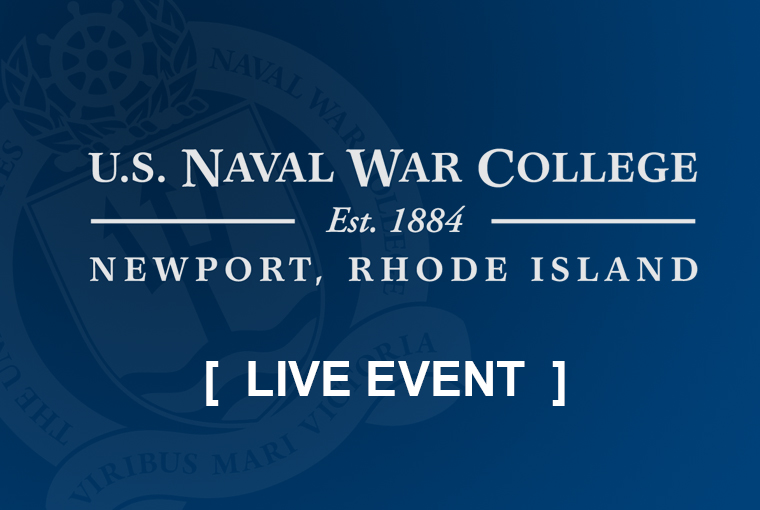Lectures of Opportunity: "Realism, Ethics and the Ukraine War"

About this Event
Event Information
U.S. Naval War College, LOO Coordinator
This event is not open to the general public
This event is for U.S. Naval War College students, faculty and staff.Realism, Ethics and the Ukraine War
The presentation outlines the case for an ethics of responsibility, arguing for self-limitation by all sides to ensure that the Ukraine conflict does not escalate to a point that it threatens the survival of humanity. This requires methodological rigor in analysis and conceptual clarity. A number of methodological approaches to the conflict are examined, including realism, idealism, imperialism, postcolonialism and the systemic (the view that domestic politics determines foreign policy, and suggests that an interpretivist approach is the most appropriate. This applies elements of the other approaches but combines them in a pragmatic process-tracing manner. The study then shifts to outlining the broader structure of international affairs, suggesting interaction between the foundational UN-based Charter international system and the creation of various contending sub-orders in the framework of international politics. Among the latter the political West is crucial, created during the first Cold War but surviving thereafter to claim certain universal prerogatives, which challenges the supremacy of the Charter system and its fundamental principle of sovereign internationalism. Instead, democratic internationalism inspired liberal hegemony. In Ukraine this exacerbated the enduring contest between rival visions of Ukrainian nationhood. This raises some fundamental ethical dilemmas, including the proper limits of Russia’s security concerns and Ukraine’s right to self-defense. The ultimate dilemma is to ensure the survival of the Charter system and with it of humanity itself.
About this Lecture
Lectures of Opportunity offers U.S. Naval War College (NWC) students, faculty, and staff an opportunity to learn more about national and international socio-political subjects that may be of relevance to the NWC community.
More on Lectures of OpportunityDownloads for this event
SynopsisMost Recent
8:00 a.m.
U.S. Naval War College, 686 Cushing Rd, Newport, RI 02841
U.S. Naval War College, 686 Cushing Road, Newport, RI 02841
U.S. Naval War College, 686 Cushing Road, Newport, RI 02841
8:00 a.m.
U.S. Naval War College, 686 Cushing Road, Newport, RI 02841
U.S. Naval War College, 686 Cushing Rd, Newport, RI 02841
